West Midlands iPad scheme boosting children's learning
- Published
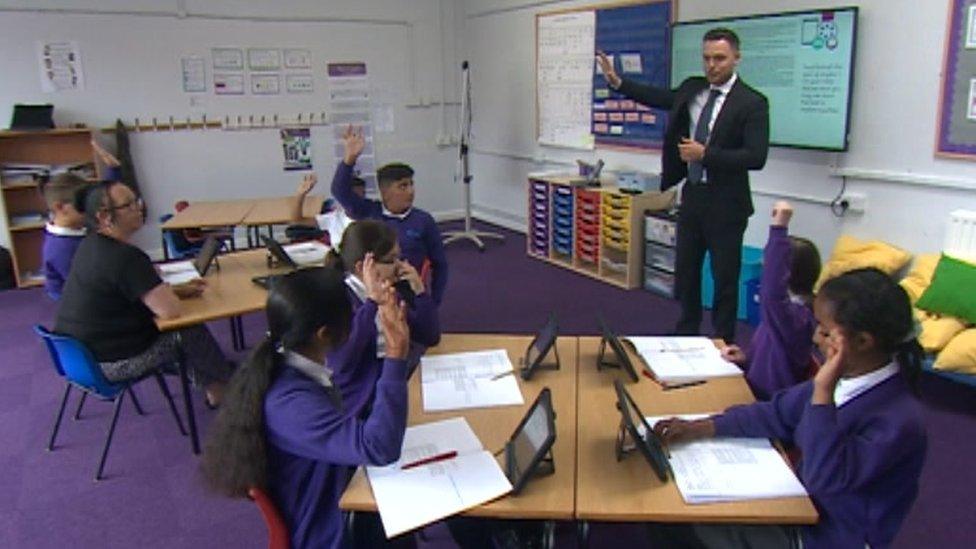
Every child at Slade Primary School has been given an iPad, funded by the academy trust
An academy chain in the West Midlands that has invested heavily in iPads for children says it is paying dividends.
And it is not just in terms of children's learning now, but for their employment chances in the future.
The Arthur Terry Learning Partnership (ATLP) has handed out 11,000 devices - one for every pupil and teacher.
The West Midlands has the highest proportion of people completely offline in the UK (22%), according to the region's politicians.
In response to that, the West Midlands Combined Authority (WMCA) secured £4m of government funding earlier this year to try and narrow the gap.
That is on top of £19m already invested in digital bootcamps or teaching key skills.
It said that had now been distributed the £4m to individual councils to allow them to target the communities most in need.
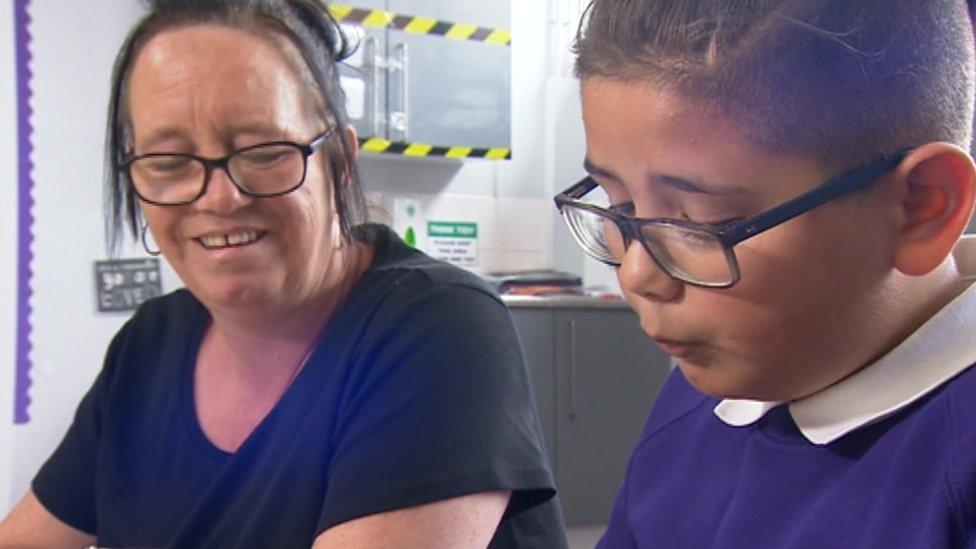
Katy's grandson Kamran said it was much easier to complete homework since having the iPad
Slade Primary School in Birmingham, part of the ATLP, is ahead of the game.
"There's no such thing as the dog ate my homework any more," Assistant Head Sam Scadeng said.
"So for these children it's also preparing them for a life of work at this early stage."
While previously IT sessions were often spent showing children how to log on or simply navigate websites, since distributing the iPads Mr Scadeng said pupils had become more digitally literate.
"Now we spend less time on those sort of administrative skills and more time coaching the children on actual computing or... subjects," he said.
'Huge inequality'
Access to reliable, fast broadband remains a problem in many areas of the West Midlands, with full fibre coverage under 10% in Sandwell, Walsall, and Dudley.
Children at Slade Primary without wi-fi at home can download homework and learning apps at school, allowing them to complete tasks offline later.
"During the Covid19 pandemic there was a huge inequality between the access children had to technology and that ultimately impacted children's progress," Richard Anderton, Digital Transformation Lead for the ATLP, said.
He said the academy trust wanted to ensure "no matter what the postcode children were from" they had access to technology inside and outside the classroom.
The ATLP runs 20 schools across the West Midlands, including Birmingham, Coventry, Staffordshire and North Warwickshire.
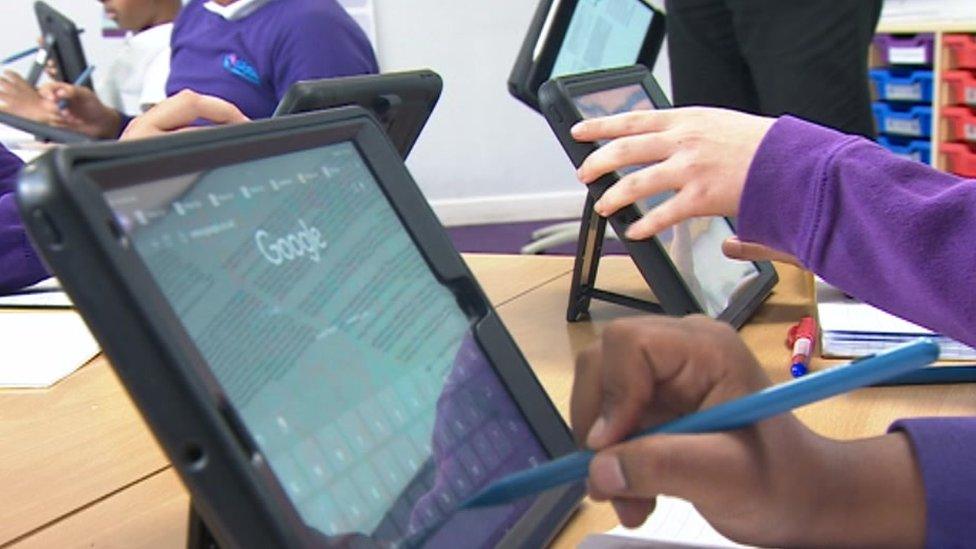
According to a parliamentary inquiry, 2.4 million people in the UK cannot complete basic digital skills such as using a mouse or searching online
Katy, 46, whose grandson goes to Slade Primary said: "I wouldn't have been able to buy him one myself and It's a huge difference.
"I actually get to see what he's working on now and his language skills are so much better."
It is not just the pupils benefiting.
Mr Scadeng said many parents had told staff their children were also teaching them how to do simple, but important, tasks such as sending emails.
In the WMCA's digital roadmap, published in 2021, mayor Andy Street said reducing the digital divide was key, not just for opening work opportunities, with more jobs relying on digital skills, but also to reduce isolation and cut bills, highlighting the value of price comparison websites among others.
He also identified the value of "digital connectivity" for accessing basic public services, which are increasingly online - whether it is healthcare, banking or applying for benefits.
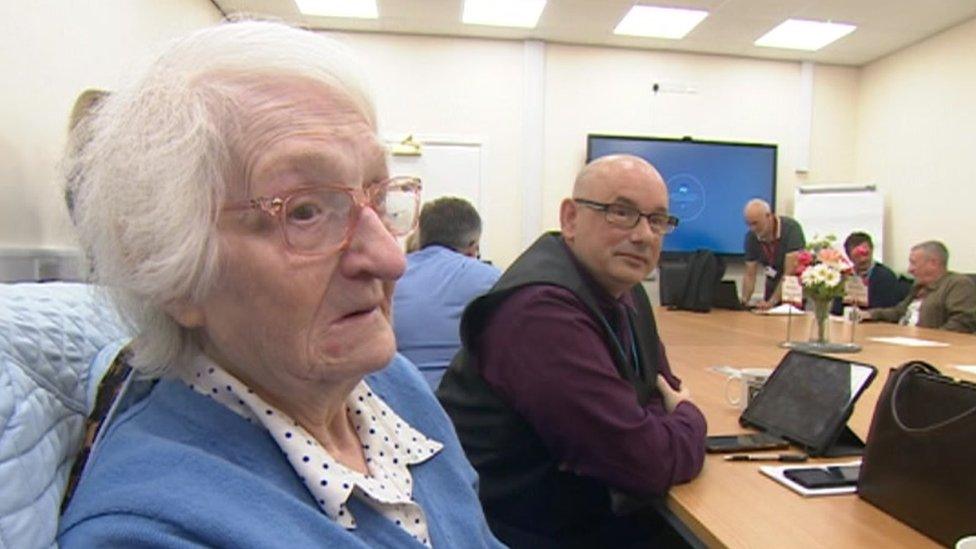
Margaret Astill, from Telford, said she felt scared by technology, but would like to be able to order prescriptions online
Telford and Wrekin Council already runs an iPad loan scheme ,as well as Get Connected sessions targeting over 65s.
Cynthia Mitchell, 79, said she had started to feel excluded from so many things.
"I was looking up airline tickets last night," she said.
"I wouldn't have been able to do that [previously], because there's no other way of doing that.
"We booked a holiday and we were able to do that because of the internet."
Margaret Astill, 81, said she wanted to learn how to order prescriptions online.
"I have to ring up the line where you have to wait forever, but it'd be lovely if I could do it myself," she said.

Follow BBC West Midlands on Facebook, external, Twitter, external and Instagram, external. Send your story ideas to: newsonline.westmidlands@bbc.co.uk
- Published1 June 2023
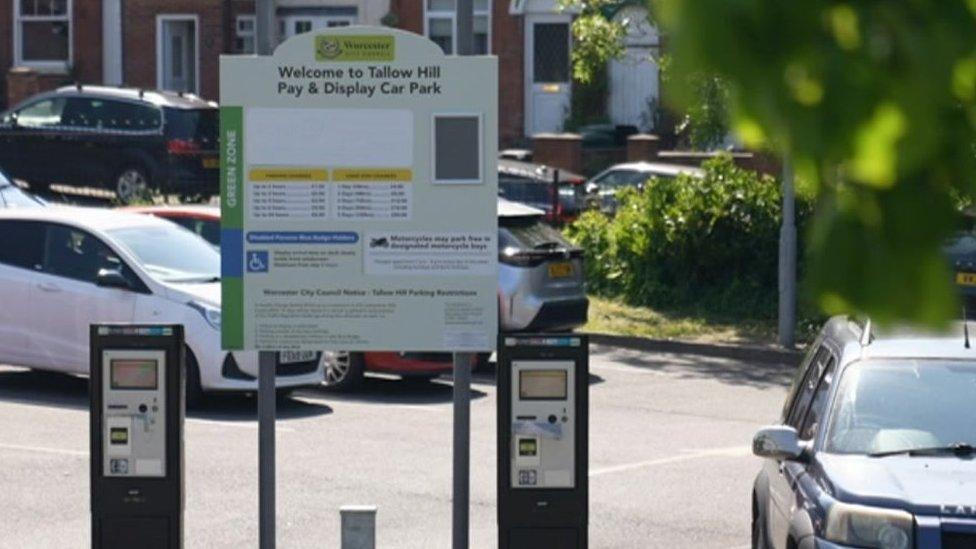
- Published29 January 2021
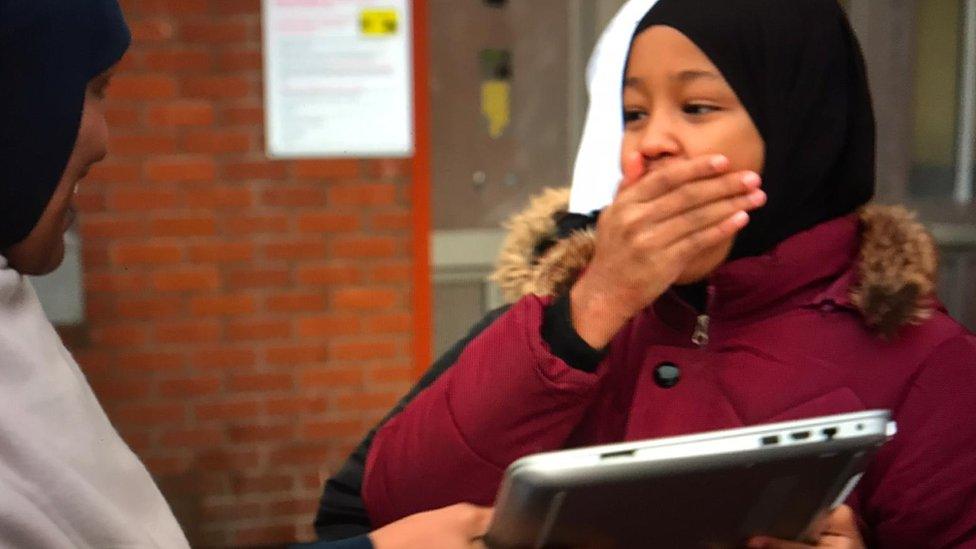
- Published22 February 2023
